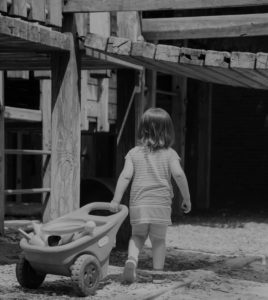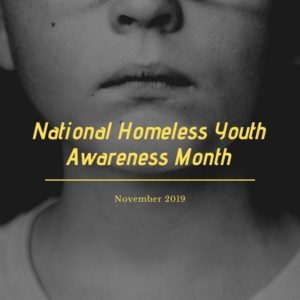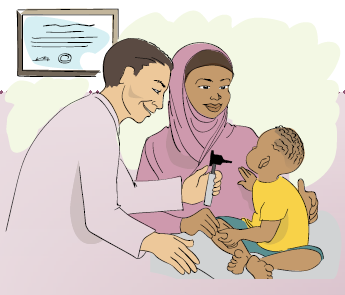PACT’s Therapeutic Nursery Early Head Start Program Shelters Families Experiencing Homelessness from the Storm
The following article is part two in a series of articles that shine a spotlight on the plight of homeless children and families, and how to support them.
 As National Homeless Youth Awareness Month closes, remember to support children and families experiencing homelessness as well as the many organizations that work every day to improve outcomes for them all year long.
As National Homeless Youth Awareness Month closes, remember to support children and families experiencing homelessness as well as the many organizations that work every day to improve outcomes for them all year long.
For example, the PACT Therapeutic Nursery Early Head Start Program, an affiliate of Kennedy Krieger Institute, provides high-quality child care for children under age three who live in Baltimore City’s shelters.
However, the mission of the program extends far beyond a typical child care setting. What sets the Nursery a part is its emphasis on support and resources for both the child and parent; namely, trauma-informed, attachment-based interventions that promote parent-child attachment and enhance stability in the family.
According to Director Kim Cosgrove, a “trauma-informed approach” simply means recognizing that the trauma someone has gone through (like the loss of a home) can impact how they experience the world around them.
“Children, especially infants and toddlers, remember trauma in different ways than adults,” said Cosgrove. “Cognitively, they don’t have it quite figured out; but the memory lives in their being, bones, and muscles.”
Research confirms the harmful effects that arise from the trauma of experiencing homelessness in childhood. Compared to others in the same socioeconomic situation, these children are four times more likely to be sick and two times more likely to have developmental disabilities, in addition to running a significantly higher risk of behavioral and sleep issues, plus major mental health issues as they develop.
 Secure attachment and positive parenting behaviors can help to buffer against the risk of developmental delays and trauma-induced challenges. The Nursery offers a number of unique activities to foster connection in a nurturing way, from a weekly “Family Tradition” breakfast and parent group to a parent-child Mindful Awareness Play (MAPS) Session. Through ritual, routine, and lots of play, high-risk families are able to enhance their bond and improve resilience. In addition, the Nursery’s littlest participants are able to strengthen their social and emotional development during the crucial early childhood years.
Secure attachment and positive parenting behaviors can help to buffer against the risk of developmental delays and trauma-induced challenges. The Nursery offers a number of unique activities to foster connection in a nurturing way, from a weekly “Family Tradition” breakfast and parent group to a parent-child Mindful Awareness Play (MAPS) Session. Through ritual, routine, and lots of play, high-risk families are able to enhance their bond and improve resilience. In addition, the Nursery’s littlest participants are able to strengthen their social and emotional development during the crucial early childhood years.
“Children don’t just want attention, they crave connection,” said Chanay Robbins, who oversees the classroom setting and program. “Babies will throw a toy because they don’t have the ability to say, ‘I don’t want you to leave.’ For the children we serve, separation anxiety can be extreme. We go above and beyond to nurture the children in our care, respect their life experiences, and understand their behavioral cues. We want them to know we understand what they are telling us with those behaviors. Once they feel safe and secure, they begin to really explore and thrive.”
While parents are encouraged to participate in the Nursery’s activities, they also are able to focus on getting back on their feet—securing employment and housing—with the peace of mind that their children are supported and valued. Robbins takes pride in creating a welcoming environment where everyone is greeted with a warm smile and treated with dignity. After nearly 20 years working at the Nursery, Robbins said the most rewarding part is seeing the children and parents connect before her eyes.
“Our goal is to build a nurturing connection in every interaction with both the parents and children,” said Robbins. “When parents have that aha moment of, ‘I matter. I’m the most important person in my baby’s life and I’m going to be there for my baby,’ it makes my heart melt.”
Cosgrove echoes this sentiment, sharing that “it’s all too easy for us, as parents, to get caught up in ‘taking care of business’—and for those experiencing homelessness, this stress and pressure is even more overwhelming”.
Yet providing parents with a brief shelter from the storm, and the chance to put everything aside to be with their child is incredibly meaningful.
“We often talk about filling children’s loving cup, but it’s our job to fill the parent’s loving cup and we do that in a variety of ways,” said Cosgrove. “It’s so exciting when we’re able to support a parent in a way where they start to trust themselves and their own instincts on nurturing their baby in the way their baby needs to be nurtured.”






